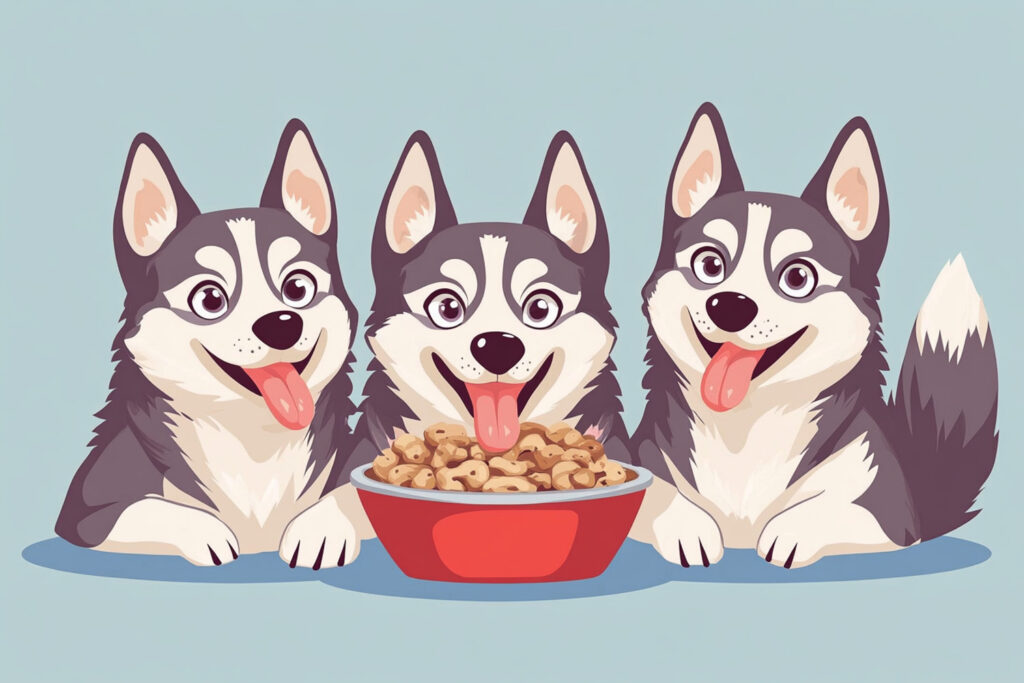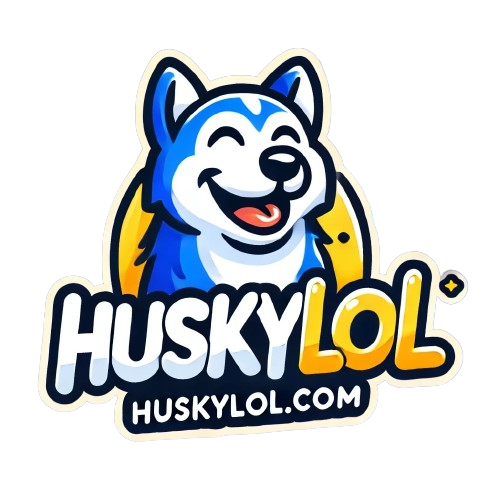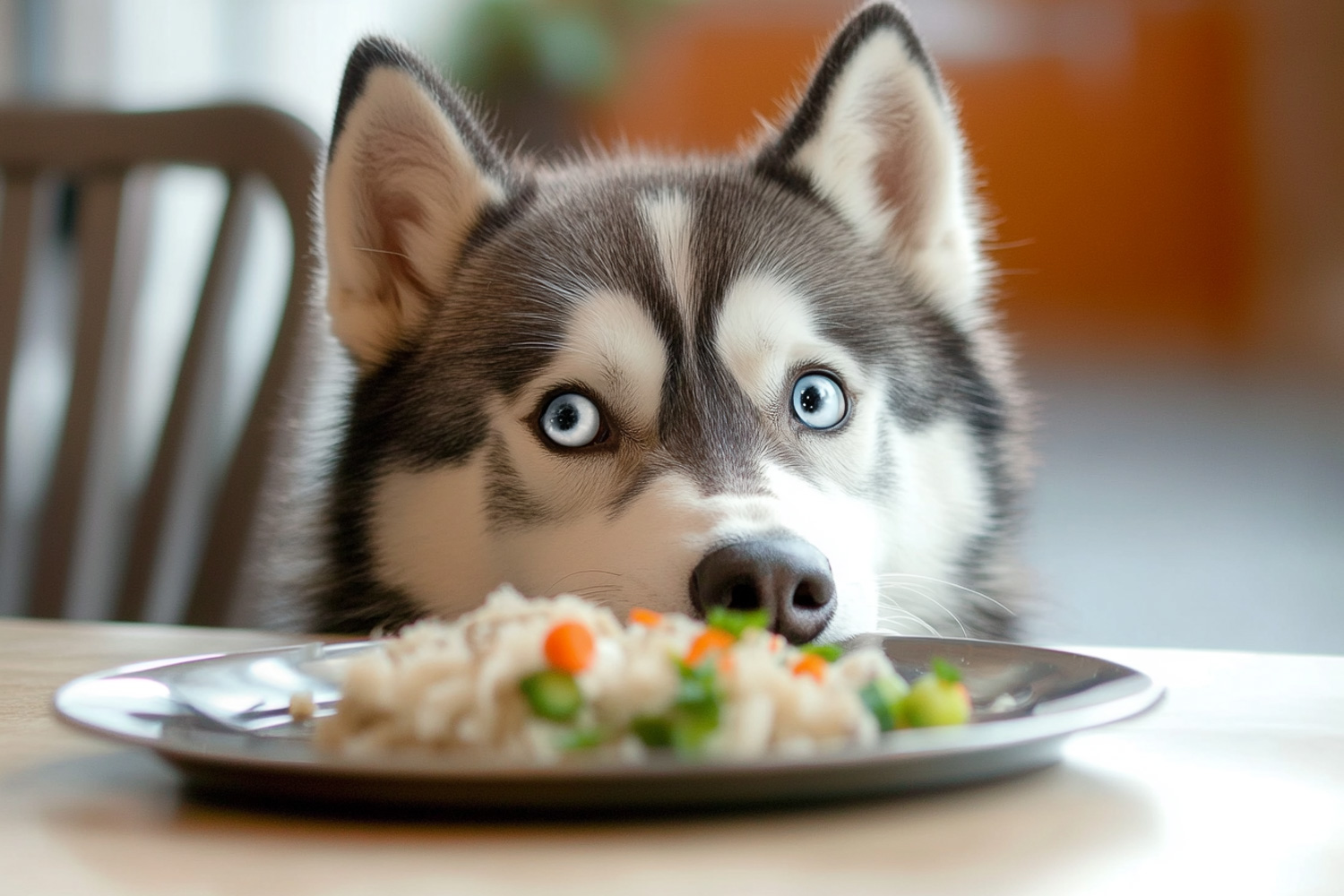Huskies are active, energetic dogs with unique dietary needs. These beautiful Arctic breeds require high-quality food to maintain their health and vitality. The best dog food for huskies is high in protein, moderate in fat, and includes essential nutrients to support their active lifestyle.

Choosing the right food for your husky can make a big difference in their health and happiness. A good diet helps keep their coat shiny, their energy levels up, and their weight in check. It’s important to pick a food that matches their age, size, and activity level.
Some huskies may need special diets due to health issues or allergies. Always talk to your vet before making big changes to your dog’s food. They can help you find the best option for your furry friend.
Key Takeaways
- High-protein, moderate-fat foods are ideal for huskies
- Choose food that fits your husky’s age and activity level
- Consult a vet for personalized dietary advice
Understanding Huskies’ Dietary Needs
Huskies have unique nutritional needs due to their active lifestyle and cold-weather heritage. A proper diet is key to keeping these energetic dogs healthy and happy.
Protein Requirements for Huskies
Huskies need lots of protein in their diet. They do best with high-protein dog foods that have 25-30% protein. Good protein sources include chicken, fish, and beef.
Protein helps huskies build strong muscles. It also gives them energy for running and playing. Look for dog foods that list a meat as the first ingredient.
Some owners choose high protein dog food for huskies. These foods can have up to 40% protein. But check with a vet before making big diet changes.
The Role of Grains in a Husky’s Diet
Grains can be part of a husky’s diet. They give energy and fiber. But some huskies may not digest grains well.
Many husky owners pick grain-free dog food for huskies. These foods use other carb sources like potatoes or peas. Grain-free diets can work well for some huskies.
But grains aren’t bad for all huskies. Whole grains like brown rice can be good. They help with digestion. The choice depends on each dog’s needs.
Talk to a vet about grains in your husky’s diet. They can help you pick the best food for your dog’s health.
Selecting the Right Food for Your Husky
Choosing the best food for a husky requires careful thought. Huskies have special needs due to their high energy and unique body type. Good food keeps them healthy and active.
Criteria for High-Quality Dog Food
Huskies need food with lots of protein. Look for meat as the first ingredient. Avoid foods with fillers like corn or wheat. Good fats are important for a husky’s coat and energy.
Choose food with natural preservatives. Avoid artificial colors and flavors. Vitamins and minerals should come from real food sources when possible.
Huskies do well with foods that have 25-30% protein and 15-20% fat. Check the label to make sure these levels are right.
Considerations for Active Huskies
Active huskies burn a lot of calories. They need more food than less active dogs. Look for high-calorie foods made for working breeds.
Some brands make special food for sled dogs. These can be good for very active pet huskies too. They often have extra fat and protein.
Feed active huskies smaller meals more often. This helps them keep their energy up. Always have fresh water ready, especially after exercise.
Options for Huskies with Sensitive Stomachs
Some huskies have trouble digesting certain foods. For these dogs, try a limited ingredient diet. This means fewer ingredients that might upset their stomach.
Grain-free foods can help some huskies with sensitive stomachs. But not all huskies need grain-free food. Talk to a vet to see if it’s right for your dog.
Probiotics in food can help with digestion. Some brands add these to their sensitive stomach formulas. You can also give probiotics as a supplement.
Weight Management for Huskies
Keeping Siberian Huskies at a healthy weight is key for their long-term health and energy. The right food choices and feeding habits play a big role in weight control for this active breed.
Understanding the Ideal Weight for Huskies
Male Huskies typically weigh 45-60 pounds, while females range from 35-50 pounds. A Husky at the right weight will have a visible waist when viewed from above. You should be able to feel their ribs without a thick layer of fat.
Huskies are active dogs with high energy needs. They burn lots of calories, especially when working or exercising. But they can gain weight if overfed or not active enough.
Regular weigh-ins and body condition checks help track a Husky’s weight. Ask your vet for guidance on your dog’s ideal weight range.
Dog Foods for Weight Control
The best foods for Husky weight management are high in protein and low in fat. Look for options with 25-30% protein and 10-15% fat. Fiber helps Huskies feel full on fewer calories.
Some good choices include:
- Grain-free formulas with lean meats
- Foods with complex carbs like sweet potatoes
- Wet foods mixed with dry kibble to add volume
Measure food portions carefully. Split daily meals into 2-3 smaller servings. This helps control hunger and keeps energy levels steady.
Treats should make up no more than 10% of daily calories. Choose low-calorie options like small pieces of cooked lean meat or veggies.
Skin and Coat Health for Huskies
Huskies need the right nutrients to keep their skin healthy and coats shiny. Some foods can help, while others may cause problems.
Nutrients Beneficial for Skin and Coat
Omega-3 fatty acids are key for husky skin and coat health. These fats reduce inflammation and make fur shiny. Look for fish oil or flaxseed in dog food.
Vitamin E helps protect skin cells. It works with omega-3s to keep coats soft and glossy. Nuts and vegetable oils are good sources.
Zinc is important for skin repair and hair growth. Meat, eggs, and fish are rich in zinc.
Biotin, a B vitamin, helps make healthy skin oils. It’s found in liver, egg yolks, and some veggies.
A mix of these nutrients in dog food can help keep a husky’s coat thick and skin itch-free.
Avoiding Common Allergens
Some huskies may be sensitive to certain food ingredients. These can cause skin issues and dull coats.
Common allergens include:
- Beef
- Dairy
- Wheat
- Soy
- Chicken
If a husky has skin problems, try food without these items. Look for limited ingredient diets with novel proteins like duck or salmon.
Grain-free options may help some dogs. But not all huskies need grain-free food.
Watch for signs of food allergies:
- Itchy skin
- Red, inflamed areas
- Constant licking or chewing
If these occur, talk to a vet about changing the dog’s diet. They can suggest the best food for huskies with skin issues.
Transitioning to a New Dog Food
Changing your Husky’s food requires care and patience. A gradual switch helps avoid stomach upset and ensures your dog accepts the new diet.
Introducing New Foods Gradually
Start by mixing a small amount of new food with the old. On day one, use 25% new food and 75% old food. Increase the new food by 25% every 2-3 days. This slow change lets your Husky’s digestive system adjust.
For Huskies with sensitive stomachs, take extra time. Stretch the transition over 10-14 days instead of 7-10. Watch for signs of discomfort like vomiting or diarrhea. If these occur, slow down the switch.
Use a measuring cup to ensure proper portions. This helps maintain the right balance of old and new food.
Monitoring Your Husky’s Response to New Food
Pay close attention to your Husky’s behavior and digestion during the switch. Look for:
- Energy levels
- Coat quality
- Stool consistency
- Appetite changes
Keep a daily log of these factors. This helps track how well your Husky adapts to the new food.
If you notice any negative changes, pause the transition. Go back to the previous mix ratio for a few days. Then try again more slowly.
Some Huskies may need a special diet for sensitive stomachs. Signs include frequent upset stomach or loose stools. Talk to your vet if problems persist. They can recommend the best food options for your Husky’s needs.


Leave a Reply